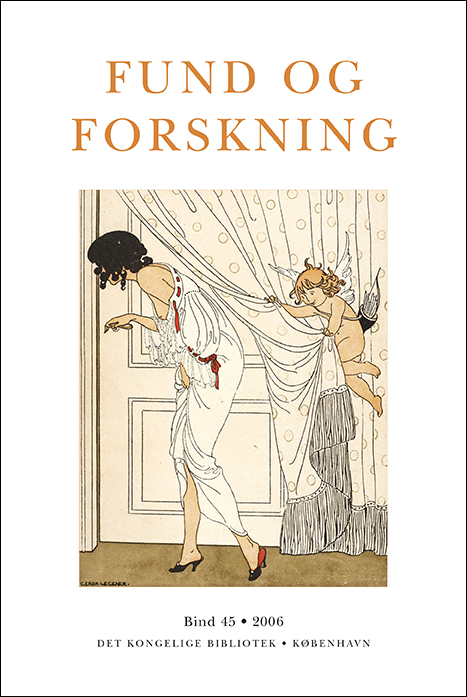Ars Apodemica. Albert Meier og kunsten at rejse i renæssancen
DOI:
https://doi.org/10.7146/fof.v45i0.41181Resumé
Ars apodemica emerged in the 16th century as the result of an essential need for approaching and systematising knowledge acquired by means of travel. By developing methodologies of travel or ars apodemica, Renaissance scholars were implementing a reliable method to help travellers learn how to observe and gather valuable information about exotic worlds during their journey. Albert Meier (1528-1603), a minister living in the parish of Lindholm in the province of Schleswig, in the North of Germany, wrote in 1587 Methodvs describendi regiones, vrbes & arces…, a work that reflects the first steps on the road to the scientific discovery of the world, as well as the author’s ambition to organise travel and information. This article introduces the epistemological and pragmatic nature of the earliest methodologies of travel with specific focus on Meier’s work. Influenced by the French humanist and philosopher Petrus Ramus, Meier’s work reflects the growth of scientific method and consequently the emergent need for the systematisation of knowledge about exotic peoples and places. In other words, travel became secularised and consequently an instrument of learning. The main objective of this article is to direct attention to the fact that methodologies of travel challenged the traveller’s consciousness of the world as a locus of knowledge. Ideally speaking, the methodologies of travel or ars apodemica are the Art of Knowing – Man and the World.Downloads
Publiceret
2014-05-15
Citation/Eksport
Brander, E. C. de L. A. A. (2014). Ars Apodemica. Albert Meier og kunsten at rejse i renæssancen. Fund Og Forskning I Det Kongelige Biblioteks Samlinger, 45, 21. https://doi.org/10.7146/fof.v45i0.41181
Nummer
Sektion
Artikler


